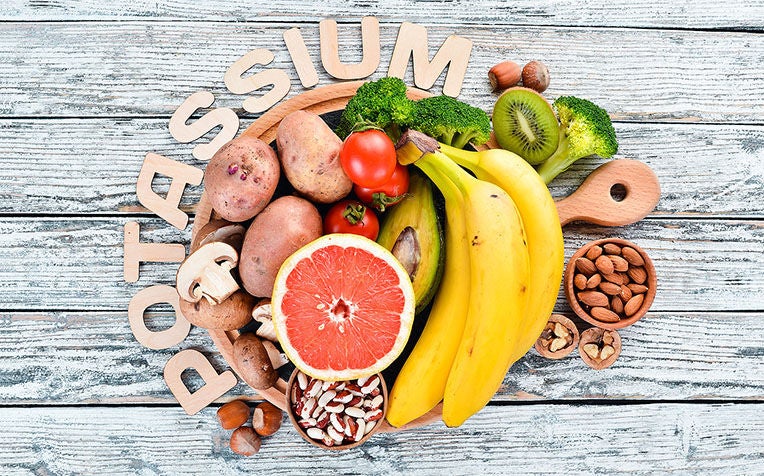
Foods with potassium can easily be found in everyday foods such as bananas, tomatoes and potatoes.
As we age, we become less active and our body’s ability to absorb and utilise nutrients also becomes less efficient.
One very essential nutrient that our body requires to stay healthy (and many may be unaware of) is potassium.
* If you have chronic kidney disease, you may need to follow a low potassium diet. Do speak to your Doctor or Dietitian for advice. |
Potassium: Why do we need it?
Potassium is an essential mineral that is needed by all tissues in the body. It helps the body to optimise blood pressure and is needed for nerve transmission and muscle contraction.
Recommended amount of potassium for seniors
For older adults aged 51 years and over, the daily recommended amount of potassium to consume is:
For males = 3,400mg
For females = 2,600mg
Top foods containing potassium
Since potassium is found in all food, having a balanced diet will likely meet the daily requirements. Foods include:
Vegetables: Leafy green vegetables, vine fruit such as tomatoes, cucumbers, zucchini, eggplant and pumpkin, and root vegetables such as potato, yam, sweet potato, lotus root.
Fruits: Banana, dates, kiwi, dried fruit, rock melon, peaches, nectarines, honeydew, fruit juice, coconut
Others: Wholegrains
What happens when an elderly lacks potassium?
"Potassium deficiency or hypokalemia can lead to various health complications such as high blood pressure (hypertension), fatigue, muscle paralysis and irregular heart rate (arrhythmia)," said Dietitian Musfirah Albakri from SingHealth Community Hospitals (SCH), a member of the SingHealth group, .
Common symptoms of potassium deficiency include:
Weakness and fatigue
Muscle weakness and cramps
Digestive problems such as constipation
Abnormal heart beat (if serious, can lead to heart arrhythmias)
Shortness of breath
Tingling and numbness in the hands, arms, legs and feet
Increased thirst
Frequent urination
Elevated blood pressure
"Although potassium is important, excessive intake may result in health problems. So eating in moderation helps with balancing nutrient intake and preventing overconsumption of less nutritious food," advised Musfirah.
Potassium in everyday foods
1 medium banana | 112mg |
1 cup of cooked spinach | 41mg |
1 cup of raw carrots | 52mg |
1 cup of cut honeydew | 61mg |
1/4 cup of raisins | 123mg |
Embrace your golden years: Nutrition for the elderly
Eating right and staying active are essential especially when we grow older. As we age, our nutrition needs may differ due to a variety of changes in the body which may include a lowered efficiency in utilizing nutrients.
Nutrition is an important element of health and understanding what constitutes good nutrition helps us to maintain or improve our well-being.
Join us in this six-part series where Dietitian Musfirah Albakri from SCH shares the benefits of various nutrients and sources for the elderly!
Watch this space for more articles on nutrition for the elderly, coming soon!
Ref: J22
Plus, check out other articles on healthy ageing:
Nutritional Needs for the Elderly
5 Easy Ways Seniors Can Stay Healthy
Nutrition and Diet Tips for Seniors
Contributed by













